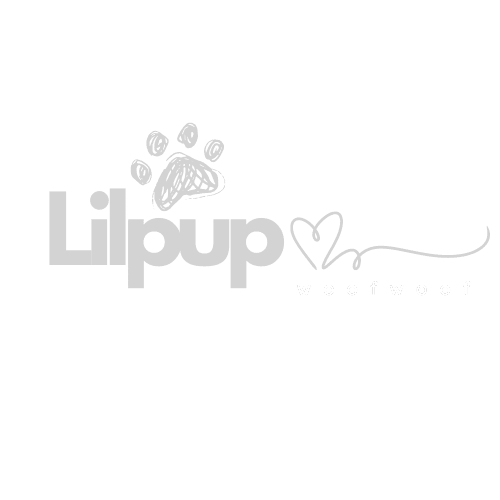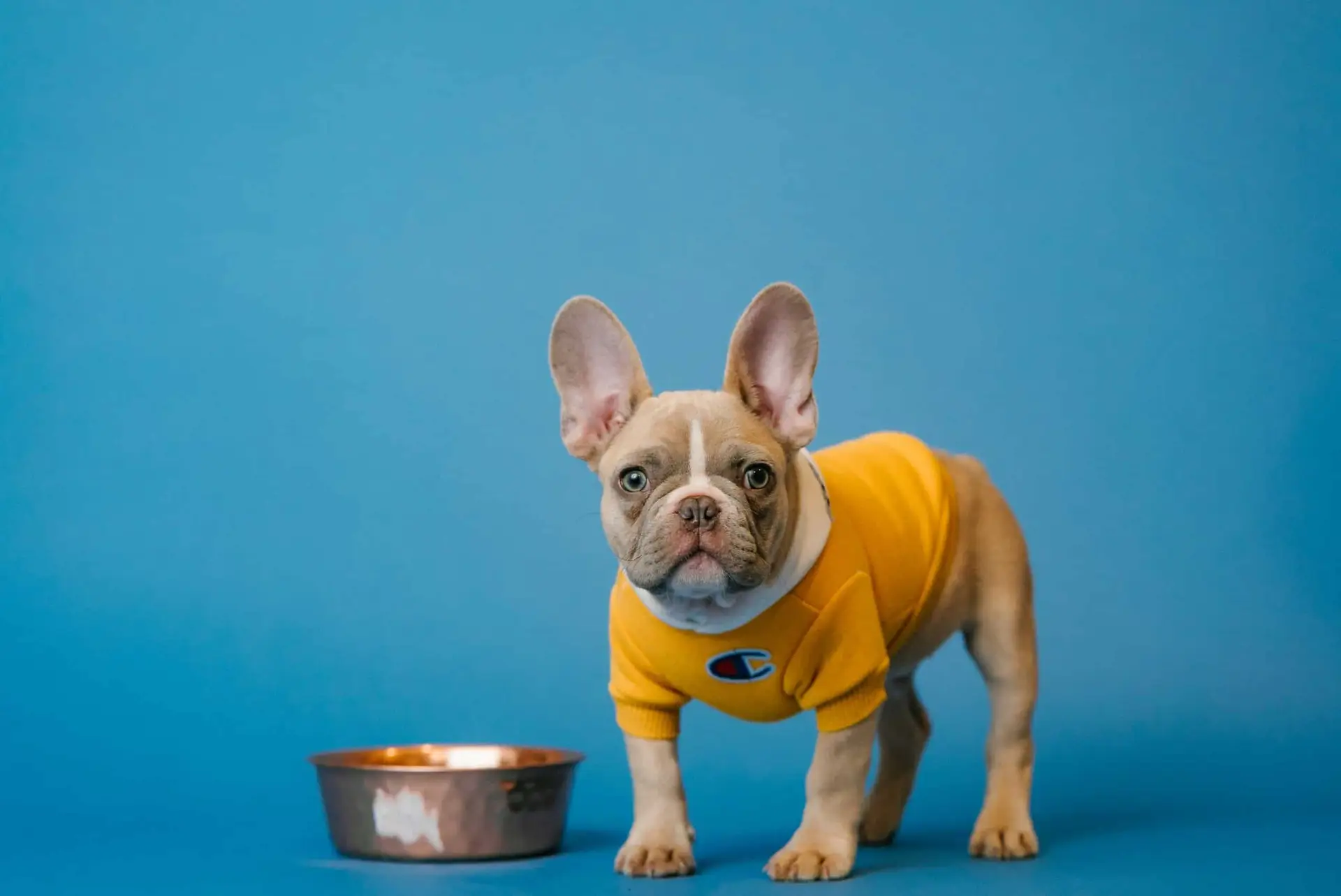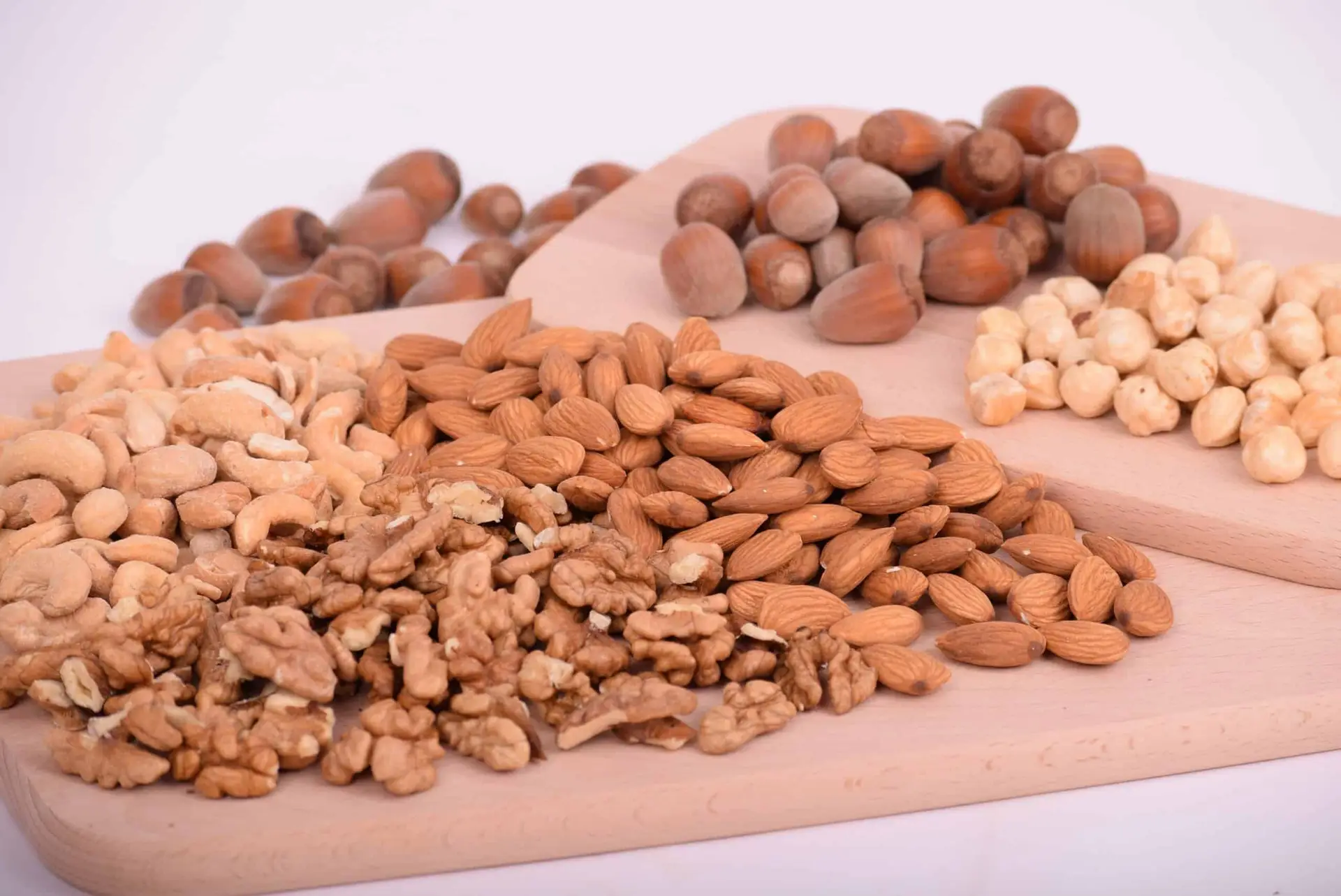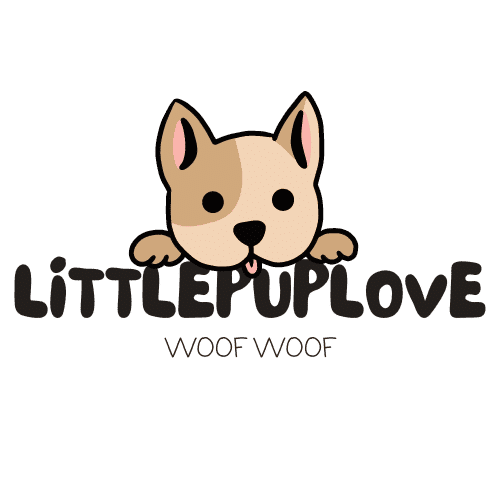When you are having a snack at home on a couch and your furry friend sitting next to you staring at you with those big cute eyes. You know your small dog wants some of that share. At that moment, are you thinking if you should share some of the human foods with your pet? Is it safe for your pet to consume? Feeding small dogs human foods is a practice that many pet owners consider.
Either for the convenience of sharing their meals, to introduce variety into their pets’ diets, or as straightforward as you just want to share a piece of your food to your furry friend so they are happy. However, it’s important to understand what types of human foods are safe and provide nutrients value to your pets and what types of foods your furry friend should 100% avoid for their health.
The digestive system of a small dog significantly differs from that of a human, making some human foods unsuitable and even harmful to their health. Pet owners should be aware that certain human foods can offer nutritional benefits to small dogs.
For instance, lean meats, specific fruits, and some vegetables can complement a dog’s diet, providing essential vitamins and minerals. Consulting with a veterinarian before making any significant dietary changes is always recommended to tailor the advice to the dog’s specific health needs and conditions.
On the flip side, many human foods can create serious health risks to small dogs. Foods high in fat, sugar, or containing toxic substances like chocolate, onions, and grapes can lead to severe health issues such as pancreatitis, obesity, or even poisoning. Small dogs are particularly vulnerable due to their size, as even small amounts of these harmful foods can cause significant health problems. Awareness and education about these risks are vital for pet owners to prevent accidental ingestion and ensure the well-being of their furry companions.
Understanding which human foods your small dog can safely eat and which they should avoid is crucial to keep them healthy and happy. In this blog post, we’ll explore some of the good and bad human foods for your furry friend. By understanding the good and bad, you will be at ease on knowing what foods you are safe to share and what foods you should be avoiding. Let’s dive in!
Disclosure: This post may contain affiliate links and I may receive a small commission if you purchase through them. There is no additional charge to you.
Which Foods Are Safe and Healthy for Small Dogs?
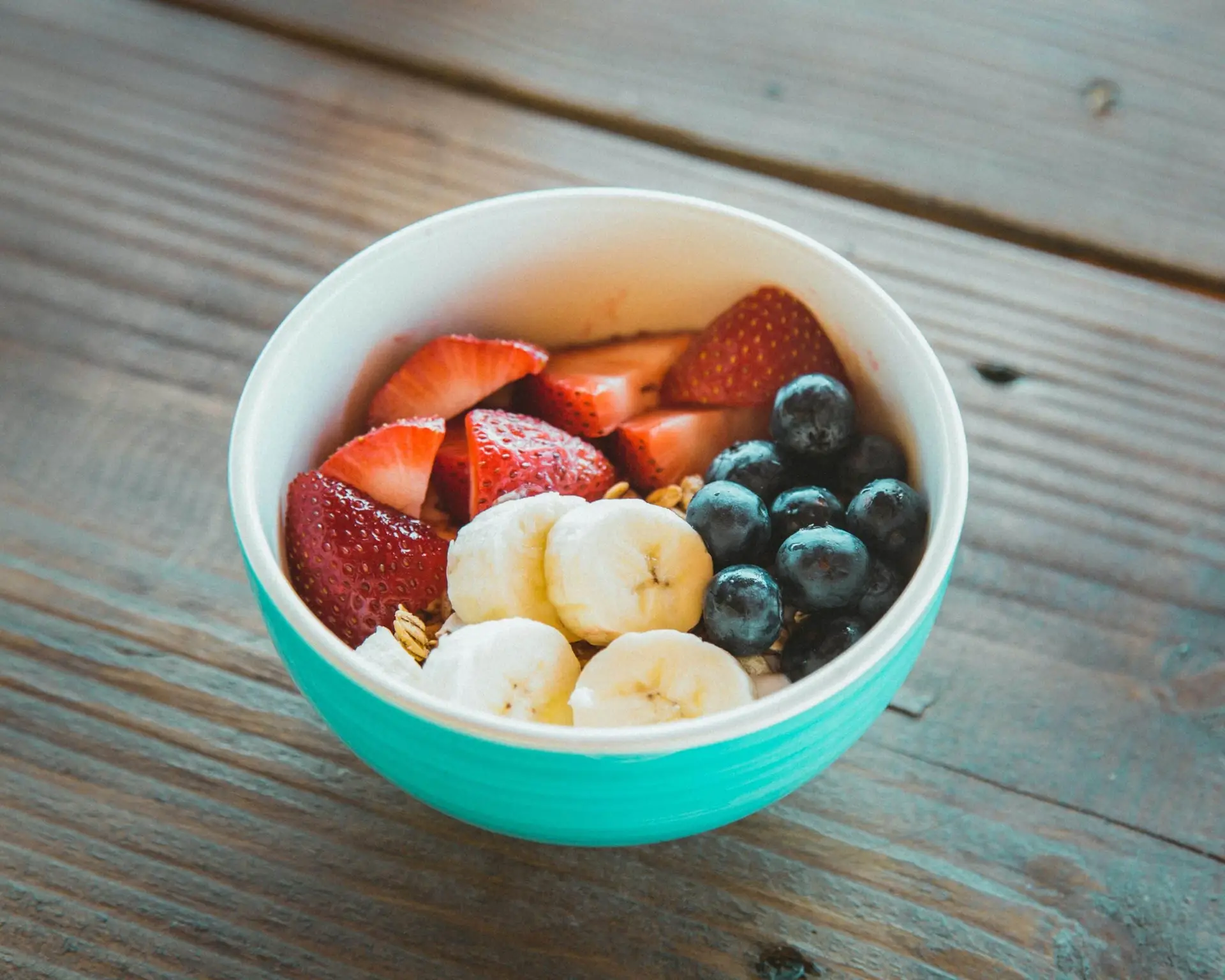
When it comes to giving your small dog human foods, it’s important to make sure the foods are safe for your dog to consume. Not just offer any nutrition, but actually safe for your small dog to eat. Some fruits in moderation may be very beneficial, as they provide a host of vitamins, fiber and antioxidants which help boost the health status of your dog. Here, we cover some common human foods that are safe to feed your little furry friend in moderation.
1. Apples
Dogs can eat apples as a treat. Apples contain fiber and vitamins A and C that can support digestion and help boost the immune system. However, apple seeds can present a choking hazard to dogs, so please make sure you remove them before offering apples to your dog. Although it would take quite an amount of apple pips for the cyanide it contains to be harmful, it’s always best to avoid giving your pooch anything that could potentially do harm. Try apple slices… crunchy and quite satisfying.
2. Blueberries
Blueberries are considered a superfood for dogs and not just for humans. Full of color and antioxidants that can fight oxidative stress & support your cells. Vitamin C and K helps support the immune system, skin and coat of your dog. The fiber in blueberries helps digestion which contributes to regular bowel movements and a healthy weight. Blueberries are a good choice for small dog snacks due to their lower calorie content.
They provide important nutrients without all those extra calories. But, as with anything else, portion control is important; too many can cause tummy issues.
3. Bananas
An excellent source of essential vitamins and minerals can make bananas an incredibly nutritious treat for small dogs as they grow. Bananas which are rich in potassium promote healthy heart functioning and muscle strength. They are also a good source of vitamin B6, which plays an important role in cognitive development and the formation and maintenance of red blood cells.
They contain some C vitamins that help to strengthen your immune system. The fibrous content found in bananas can be good for digestion and help keep track of your dog’s passing motions, therefore making it appropriate as an occasional snack for dogs with some digestive issues. Bananas are an incredible source for natural sugars, which will provide that immediate little boost of energy and as we know dogs need to be pretty active.
Bananas are an even better treat for small dogs who will appreciate the sweet taste of perfect smoothie smurfs. Just remember to feed them in moderation due to their high sugar content and should be avoided if your dog is overweight or diabetic.
4. Strawberries
Another fruit, high in antioxidants to offer your dog, are strawberries. Packed with nutrition, strawberries are loaded with powerful antioxidants. These colorful little berries help protect cells from being damaged and to provide overall health. Their vitamin C boosts immune system, skin health, bones, and metabolism. In addition to pigmentation, strawberries have fiber that keeps everything flowing in your intestines.
Due to the malic acid in strawberries, they can serve as a natural tooth-whitener and tartar-remover for your dog! Strawberries are not only low in calories, but they contain a large amount of water content making them an ideal snack for your small dog that can be enjoyed to help maintain their vitality and keep wasteful caloric intake at bay. Remember to feed your little pup tiny bit sized morsels so they don’t choke. Be sure to feed them fresh and as a treat only, because if you overdo the strawberries they can cause an upset stomach.
5. Pineapples
Pineapples are a great tropical treat for your small dog. It provides Vitamins C for immune and B6 for skin health. Manganese is also found in them that allows to keep the bones strong and healthy by helping your dog during his/her growth. Another reason for such healthy digestion properties of pineapples is that they have a lot of dietary fiber which stimulates regular bowel movements.
Pineapples also have bromelain, an enzyme shown to reduce inflammation and promote better nutrient absorption. Pineapples are an excellent tool to deliver necessary nutrients and keep your dog hydrated, especially on warm summer days because of their natural sweetness. Like other fruits, serve your dog bite-size to avoid choking hazards and don’t add any sugar or syrup since pineapple itself is already sweet.
6. Watermelon
A tasty and hydrating snack for the little ones, watermelon brings a lot more benefits to your dogs. Watermelon is full of vitamins A, B6, and C along with potassium to support the immune system and keep eyes healthy. It also sustains muscle functioning and keeps your dog refreshed and hydrated, ideal for hot summer days or after a long run. Watermelon contains natural fiber, which helps us digest and clean bowels in a normal state.
Watermelon is ALSO a low calorie, low fat option for dogs that need to keep an eye on their waistline. But be wary of the seeds and rind which can cause digestive upset, so shell them before sharing with your dog! To break up your dog’s meals a little, offer the watermelon in tiny bite-sized pieces as an infrequent treat.
7. Kiwis
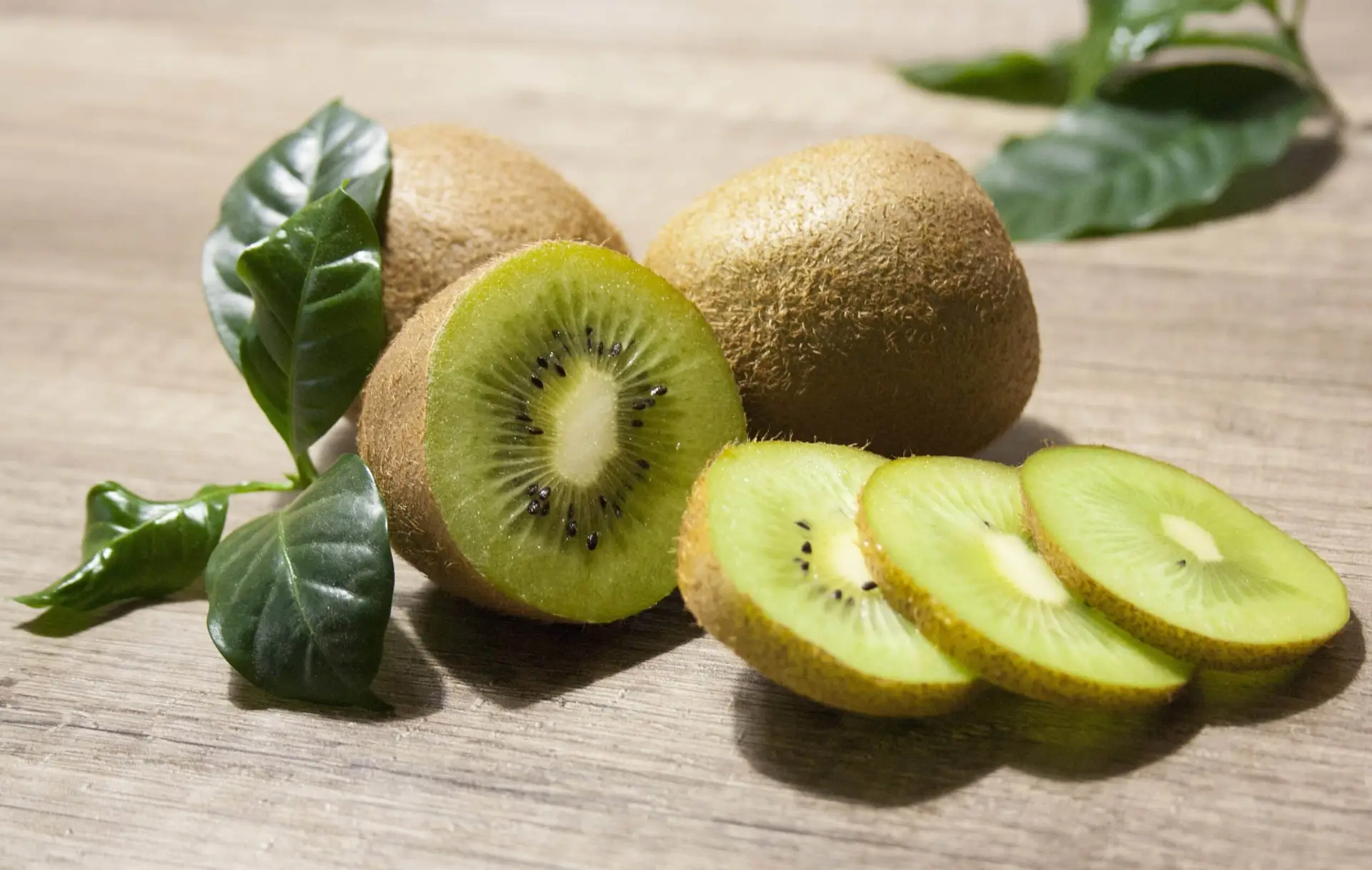
Kiwis are safe for dogs and rich in Vitamin C, K, and fiber. They are a great nutritious addition to your small dog’s diet. These tangy fruits that are packed in vitamin C will help to maintain your dog’s immune system and support healthy skin. It can also help in healing wounds. The vitamins in Kiwis can reduce blood clots and as well provide strong bones. The digestive system and the bowel movement also benefits from eating kiwis because it is rich in fiber.
These little guys are low in calories and sugar, which makes them a great snack for dogs watching their weight. Kiwis have an unique flavor and texture and provide a refreshing change from traditional treats. When offering kiwis to your dog, be sure to remove the skin, as it can be tough to digest, and cut the fruit into small pieces to prevent choking hazards.
8. Oranges
Oranges are safe for dogs to eat in small amounts. They are high in vitamin C and packed with fiber to keep them full. Oranges contain lots of vitamin C, which is good for a strong immune system and can help reduce illness in the body. It helps digestion thanks to its natural content in fibers, and a good choice for gut health.
With that in mind, oranges should be served with care and not too much at one time due to their higher sugar levels which may cause an upset tummy if eaten excessively. In addition, the taste of oranges is a little strong and there are some dogs who do not like it. You should start giving a little bit at a time to see if your dog enjoys it or not. Just like other treats, seeds and peels must be removed if you are feeding your dog oranges to give them a safe as an occasional yet tangy treat.
9. Carrots
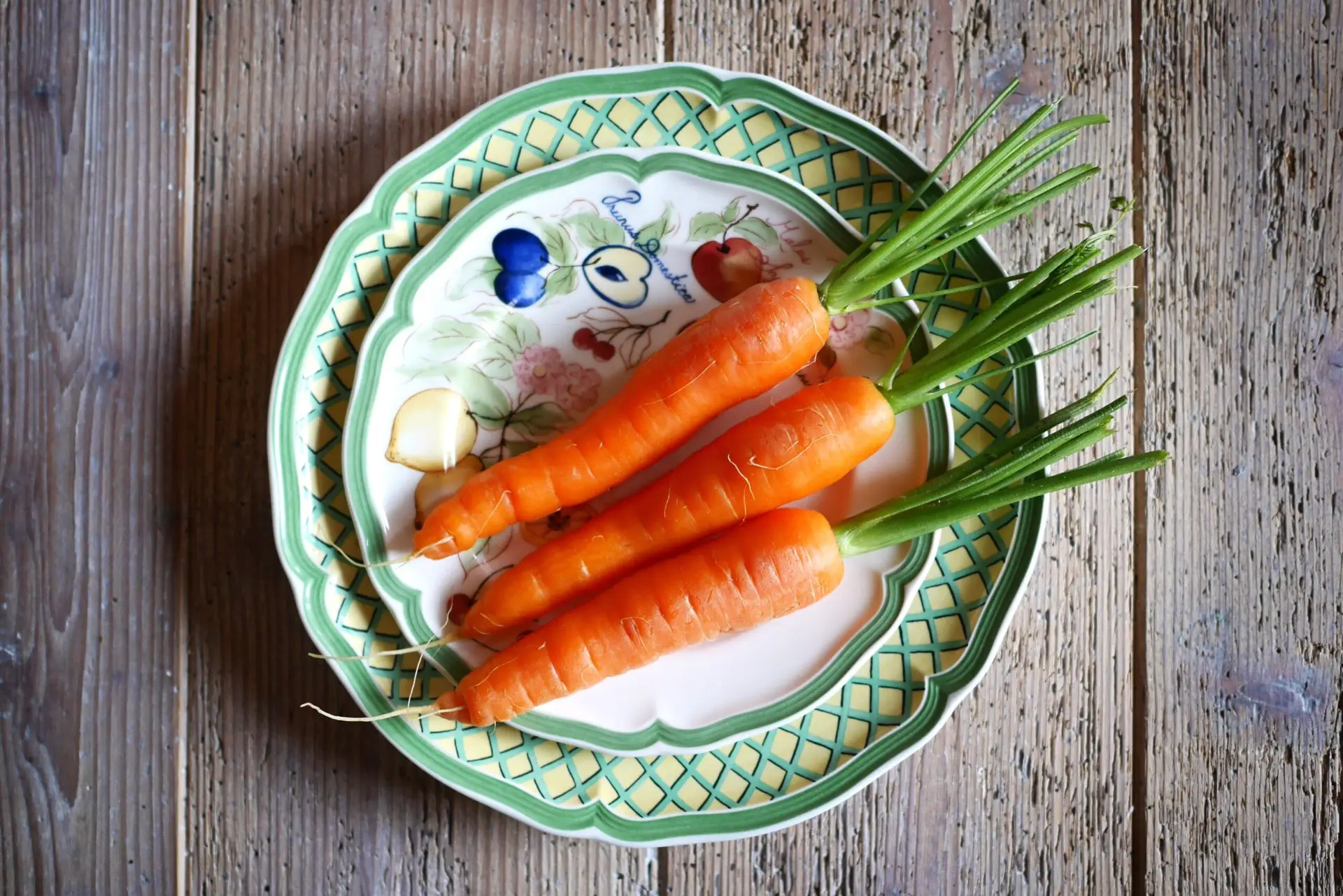
Carrots are hands down one of the best vegetables to feed your little furry friend. They are low in calories and high in fiber. It’s an excellent choice for weight loss. Besides, they are high in beta-carotene that the body changes into vitamin A which is beneficial for eyesight health and maintaining immune function as well skin. Also, chewing on a raw carrot can help clean your dog’s teeth and keep his dental hygiene in good repair.
Whether they are an addition to your small dog’s diet by feeding him or her these healthy snacks. But, if you want to go for some new food, introduce them slowly and in moderation so as to check out how your body will react.
WHAT BAD FOODS ARE POISONOUS FOR SMALL DOGS?
Before sharing some of your human foods with a small dog, it is essential to know which are potential health risks. For example, chocolate is toxic to dogs because it contains theobromine. Symptoms of caffeine toxicity are vomiting, diarrhea, increased heart rate and at higher doses seizures or death. Dark chocolate and baking chips are more dangerous as they have higher theobromine content.
1. Chocolate
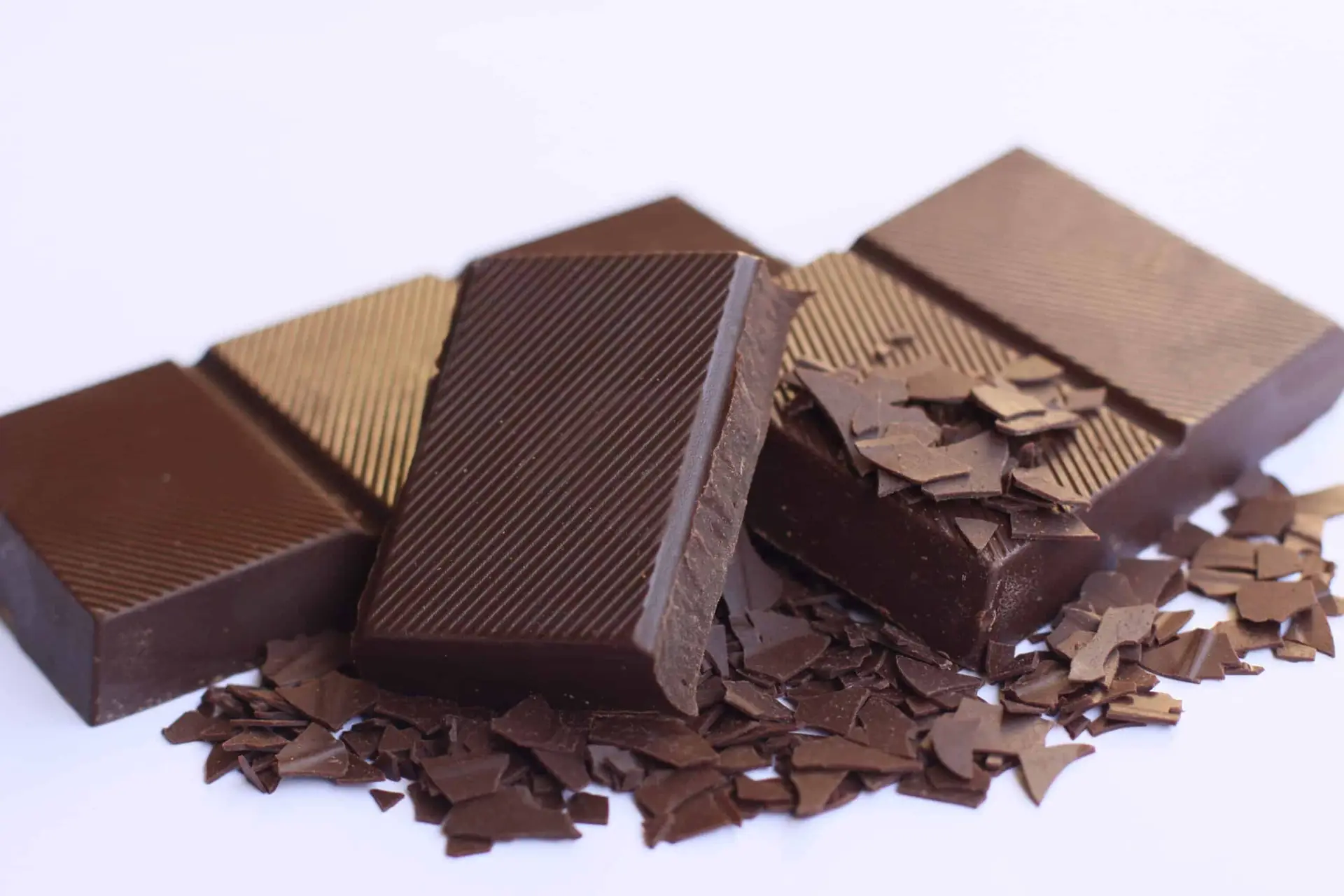
Chocolate is well-known to be No-No for dogs, especially for small dogs and can cause illnesses that are potentially life threatening. It contains theobromine and caffeine, which dogs metabolize at much slower rate than humans. Dogs who don’t know moderation so they will test their water even if it’s a little bit of chocolate, and they will suffer the same symptoms of poisoning: vomiting, diarrhea, rapid breathing, increased heart rate and restlessness.
In more severe cases, theobromine poisoning can lead to muscle tremors, seizures, heart arrhythmias, and even death.
Unsweetened chocolate and dark chocolates are particularly toxic because they have more theobromine. In keeping with the collective goal of prevention, it is imperative that dog owners remove all forms of chocolate, including cocoa powder and chocolate-covered treats from areas accessible by small dogs in order to avoid accidental ingestion.
If you think your dog has eaten chocolate, call your vet immediately for advice and treatment. Treatment in the early stages can make a significant difference to your furry friend.
2. Grapes and Raisins
Grapes and raisins are highly toxic to small dogs causing severe and possibly fatal kidney damage. The chemical compound in grapes and raisin is not yet identified, as the sensitivity varies with each dog. If your dog ate a small amount of grapes or raisins he/she can develop vomiting, diarrhea, lethargy and loss of appetite within hours after ingestion. Severe poisoning can cause anuria renal failure (failure to produce urine), with evidence of dehydration and abdominal pain.
If you suspect your dog has eaten grapes or raisins, seek veterinary care immediately; prompt intervention can reduce the damage to kidneys and increase chance of recovery. To keep your small dog out of harm, make sure that grapes and raisins as well as products with these ingredients are put safely away at all times.
3. Onions and Garlic
Dogs should not eat onions and garlic or things in the allium family. Whether raw or cooked or in a pureed state, they are poisonous to small dogs and will have very severe health repercussions. These foods contain compounds called thiosulfates that can destroy red blood cells, leading to the development of hemolytic anemia in dogs. Although symptoms of onion or garlic toxicosis may not be immediately evident, they can include vomiting, diarrhea and difficulty breathing; other canine poisonings are the result of serious illness to onions and garlic.
In the worst cases, eating onions or garlic can lead to organ failure and even death. Because they are so much smaller and have different metabolisms, the toxicity of onions and garlic can hit small dogs harder than larger animals. It is important for dog owners to be sure never to give dogs leftover food that has onions or garlic in it, and always keep these ingredients appropriately secured away from dogs. If you suspect your dog has ingested onions or garlic, contact your veterinarian immediately for guidance and treatment.
4. Avocados
Even though avocados are superfoods to humans, they can be harmful to small dogs because of their fat content and the presence of persin, which is toxic to many animals, including dogs. The amount of the toxin also differs between different types and parts of the avocados. Definitely keep the skin, pit, and flesh away from your dog.
The high fat content of avocados may cause vomiting, diarrhea and abdominal discomfort in dogs. In severe cases the function of the pancreas can be affected and cause pancreatitis due to consuming this high fat avocados. The large pit of the avocado also can present as a choking hazard and cause intestinal blockage. Although the above symptoms will not happen every time one consumes a small amount of ripe avocado flesh, better to be safe than sorry and keep avocados out of reach from your small pup.
5. Cherries
Cherries pose a number of risks to small dogs and should be avoided due to several different hazard factors. Cyanogenic glycosides in the pits, stems and leaves of cherries can send dogs into cyanide poisoning. Consuming the pits may cause dangerous and even fatal intestinal blockages or choking hazards.
Cherry poisoning typically manifests as difficulty breathing or enlarged pupils. Even cherry flesh is less toxic than the pits, it will still cause gastrointestinal distress due to its sugar level. Keep all cherries away from small dogs, even those fallen to the ground. Pick them up and toss it away before your dog can get to it.
Foods to Give Sparingly: Moderation is Key
When it comes to feeding small dogs human foods, moderation is crucial. While certain foods can be beneficial in small amounts, overconsumption can lead to health issues. Peaches, lemons, and nuts are examples of such foods that should be given sparingly to small dogs.
1. Peaches
Peaches are a tasty treat for many dogs. They are high in vitamins A and C, as well as fiber. But as with many other fruits, peaches can be a hazard to small dogs. Especially because the peach pit is poisonous and can be chokey for small dogs. Peach pits contain amygdalin, a compound that breaks into cyanide when metabolized, which dogs can get severe poison if accidently consumed.
Symptoms often start with vomiting, diarrhea and abdominal pain within a few hours after eating the pits. They may also be having trouble breathing. The stones are choking hazards and can also cause intestinal blockages if swallowed whole. Although peaches can be toxic, but it’s less toxic when the flesh is ripe and most dogs will be fine eating a small amount, but it’s just best not to feed peach pit (ripe or unripe) to smaller dogs.
If you wish to incorporate peaches into your small dog’s diet, then remember that the core must be removed, and give only in tiny amounts at infrequent intervals. Canned peaches are not good, as they have added sugar and preservatives which can be very toxic to your dog. If your tiny fuzzy baby somehow eats peach pits, or if they seem distressed after eating peaches at all, please immediately take your dog to a vet for evaluation and proper treatment.
2. Lemons
Their high acidity and potential toxicity make lemons an endangered fruit to small dogs. The peel and seeds can cause an upset stomach and it’s hard to digest. The acidity in lemons can also burn through your stomach lining and cause symptoms of nausea, vomiting, diarrhea. In addition, based on your dog’s palate they may not find the bitter taste of lemons appealing which can discourage them from eating it. Avoid your small dog getting hold of or ingesting lemons and all citrus fruits. If your dog ate a large quantity or seems uncomfortable after eating some lemon, please consult with your vet for advice and necessary monitoring / treatment to ensure the health of our dogs.
3. Bread
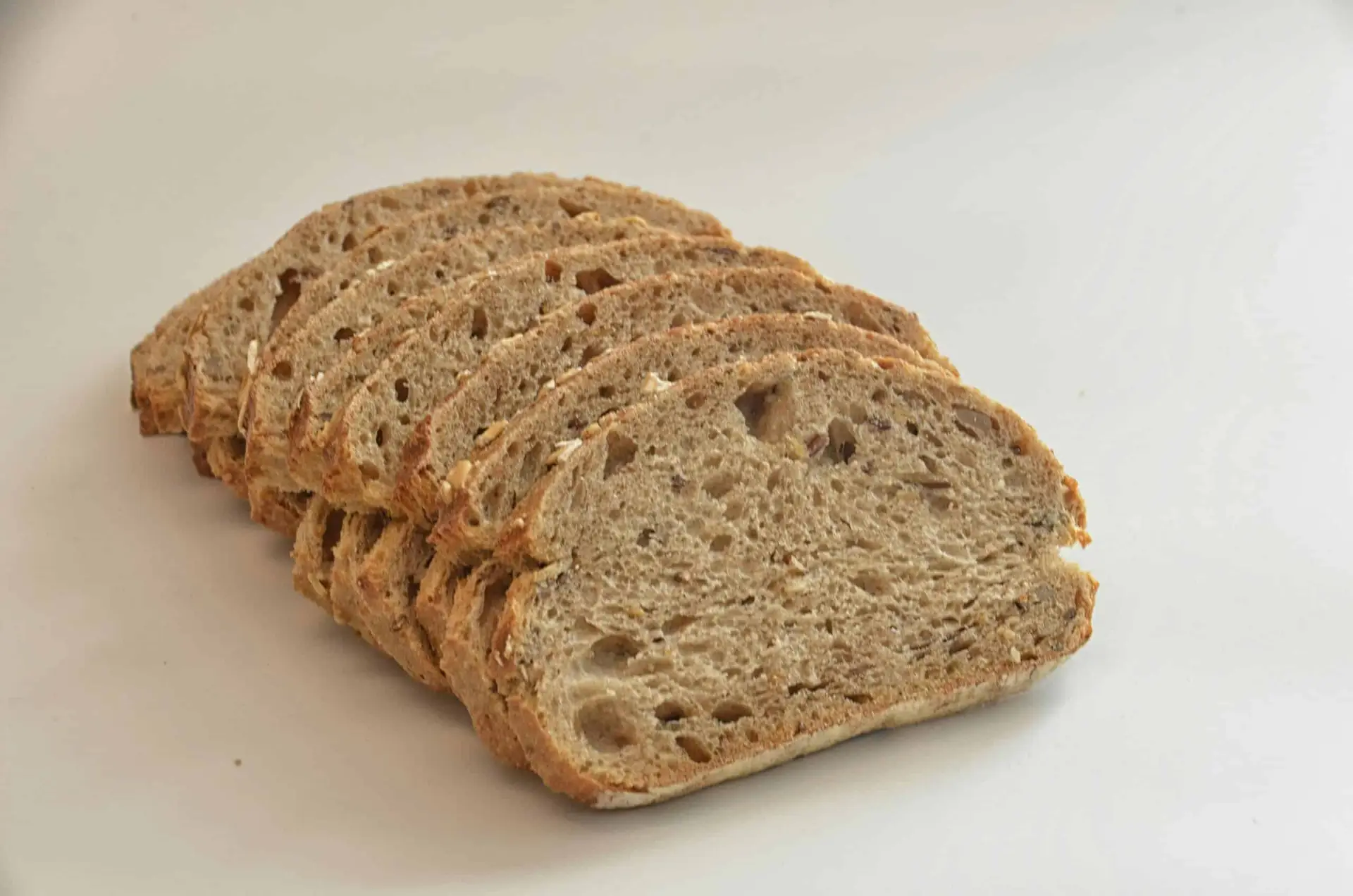
Dogs Can Eat White and Whole Grain Bread in Moderation. Unseasoned bread is safe for pets to eat, but only as a little treat. But it has little to no nutritional value, and overconsumption can lead to weight gain. Definitely avoid bread that has raisins, nuts, or seeds in them, because they will be harmful for your little pup.
4. Cooked Potatoes
Cook potatoes, especially sweet potatoes, can be consumed by your little dog in moderation. It can provide essential nutrients like vitamins C and B6, iron, and potassium. They are best served plain, without any seasoning or added fats. No raw potatoes as they contain solanine which is toxic.
5. Rice
Dogs with tummy problems are often recommended plain, cooked white or brown rice. Friendly to the Digestive System and can help to firm up their stools. The only difference is brown rice has more fiber, whole grains and nutrients but again they are both fine in moderation with a healthy diet.
Nuts: Proceed with Caution
1. Nuts in General
Nuts like almonds, walnuts and pecans provide healthy fats & proteins, but they also carry some risks. Nuts are high in fat, and might not sit well with your dog’s stomach. They could also create a choking hazard, especially for the smallest dogs. Large amounts of fat should not be consumed by dogs as it can lead to pancreatitis and nuts are high in fats. Plus, certain nuts such as macadamia are also toxic to dogs. If you decide to feed your dog nuts, always use extreme care and give them in small amounts like raw plain unsalted peanuts or cashews.
2. Macadamia Nuts
Macadamia nuts are poisonous to dogs. Even in relatively small quantities, they can produce symptoms such as weakness, vomiting. tremors and hyperthermia. Typically, symptoms develop 12 hours post-ingestion and up to a period of 48 hours. Do not feed macadamia nuts to your dog.
3. Almonds
Although not toxic in themselves, almonds can be difficult for dogs to properly chew. Potentially causing gastrointestinal distress or even becoming a choking hazard if eaten without chewing. They’re best avoided.
Considerations: Serving Size & Moderation
As is the case with introducing any new ingredient into your dogs diet, particularly human foods to them, less really is more. Small dogs have small stomachs and higher metabolic rates, which means that they can eat too many calories or develop digestive issues quite quickly. Here are some guidelines:
- Tips to start: optimize very little quantities, thus your dog does not have an adverse reaction.
- Watch and Observe: Carefully monitor your dog after he/she eats the food. Watch for any signs of allergies or digestive problems, such as itching, swelling, vomiting, or diarrhea.
- Balance: Treats and snacks should not provide more than 10% of your dog’s daily caloric intake. The remainder should come from a balanced, nutritionally complete dog food.
Balanced nutrition: More than just treats
Human food is great to share with your dog, but it should not replace a good quality formulated diet that will be able to meet all the nutritional requirements of your dog. They can be used as the occasional snack or supplement but he/she main staple should consist of dog food designed specifically for canine nutritional needs. Here’s why:
- Nutritional Completeness: Commercial dog foods are designed to meet the specific dietary needs of dogs, so they contain proteins and fats; carbohydrates ensure a complete nutritional balance with vitamins and minerals.
- Consistency: Routines are so helpful for dogs, and their bellies often get used to what they eat. Your dog may develop an upset stomach or refuse to eat if you keep changing the types of foods.
- Portion Control: It is easier to control portions and keep an eye on your dog’s caloric intake to avoid obesity.
Consulting Your Veterinarian
If you are considering changing your dog’s diet or introducing him/she to new foods, it’s best to consult with the veterinarian. The Vet will provide proper recommendations based on your dog’s age, size, and overall health. This can also be useful in checking for food allergies or intolerances.
Fun Treat Recipes for Your Small Dog
If you enjoy making treats for your dog, here are a couple of simple recipes you can try at home:
Peanut Butter Banana Bites
Ingredients:
- 1 banana
- 1 cup of oats
- 2 tablespoons of natural peanut butter
Instructions:
- Preheat your oven to 350°F (175°C).
- Mash the banana in a bowl.
- Mix in the oats and peanut butter until well combined.
- Drop spoonfuls onto a baking sheet lined with parchment paper.
- Bake for 10-12 minutes or until golden brown.
- Let cool before serving.
Apple and Carrot Pupcakes
Ingredients:
- 1 cup of whole wheat flour
- 1 teaspoon of baking powder
- 1/2 cup of unsweetened applesauce
- 1/2 cup of grated carrots
- 1/4 cup of water
Instructions:
- Preheat your oven to 350°F (175°C).
- In a bowl, mix the flour and baking powder.
- Stir in the applesauce, grated carrots, and water until combined.
- Spoon the batter into a mini muffin tin.
- Bake for 15-20 minutes or until a toothpick inserted into the center comes out clean.
Final Thoughts
Giving your little dog people food can be a fun, delicious way to bond and reward them but you need to know what is safe & good for your small dog to consume. Remember that foods that are good and healthy for humans may not be the best for your little furry friend. It’s essential to monitor your small dog for any allergic reaction after you introduce new foods to him/her. If you are not sure if the foods are safe, consult with a veterinarian.
Always be precautious on what you feed your dog. The most important thing to remember is that moderation and careful observation are required if you want to safely introduce these human foods into your little pooch’s menu.
